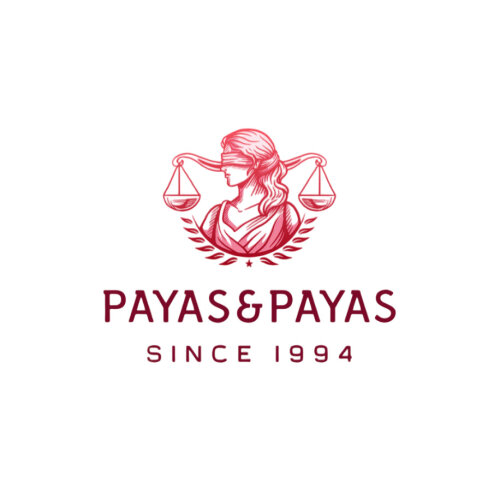Best Lawsuits & Disputes Lawyers in Turkey
Share your needs with us, get contacted by law firms.
Free. Takes 2 min.
Or refine your search by selecting a city:
List of the best lawyers in Turkey
Turkey Lawsuits & Disputes Legal Articles
Browse our 2 legal articles about Lawsuits & Disputes in Turkey written by expert lawyers.
- Legal Remedies for Foreigners in Turkish Rental Disputes
- For residential lease renewals after July 1, 2024, the 25% rent increase cap has expired; increases are now limited by the 12-month average of the Consumer Price Index (TÜFE). Landlords cannot evict tenants without a valid legal ground defined in the Turkish Code of Obligations, even if the lease term... Read more →
- Arbitration in Turkey
- The arbitration scene in Turkey is mainly occupied by four institutions, namely: Turkish Bar Association Arbitration Centre, Turkish Insurance Arbitration Commission, Istanbul Arbitration Centre(ISTAC), Istanbul Chamber of Commerce Arbitratiın Centre(ITOTAM). All four of these institutions process and resolve a large number of disputes of monetary value.A recent development in Turkish... Read more →
About Lawsuits & Disputes Law in Turkey
Lawsuits and disputes in Turkey encompass a wide range of legal conflicts, including civil, commercial, administrative, and criminal cases. The judicial system in Turkey is structured around a series of courts with specific jurisdiction over different types of disputes. These include local courts, regional appellate courts, and higher courts such as the Court of Cassation for civil and criminal matters. Turkey's legal system is influenced significantly by European legal principles, given its alignment with EU standards, ensuring fairness and transparency.
Why You May Need a Lawyer
Engaging a lawyer when dealing with lawsuits and disputes in Turkey can be crucial for various reasons:
- Complex Legal Processes: The legal system in Turkey can be complex for those unfamiliar with it, and a lawyer can provide the expertise needed to navigate it successfully.
- Language Barrier: Turkish is the official language of all court proceedings. A lawyer can help those who may not be proficient in Turkish to understand and participate effectively in their case.
- Specific Legal Expertise: Different disputes require expert knowledge, whether they relate to commercial, civil, or family law. A lawyer can provide guidance tailored to your specific needs.
- Negotiation and Settlement: Lawyers can assist in negotiations and settlements, often helping to resolve disputes without the need for lengthy trials.
- Protecting Your Interests: Legal professionals ensure that your rights and interests are safeguarded throughout the legal process.
Local Laws Overview
Several key aspects of Turkish law are relevant to lawsuits and disputes:
- The Turkish Constitution: It is the supreme law of the land, providing fundamental rights and freedoms that form the base of legal processes.
- The Civil Code: Governs civil relationships such as marriage, divorce, inheritance, and property law.
- The Commercial Code: Regulates business practices, including company law, securities, and bankruptcy.
- The Penal Code: Outlines activities considered offenses against the state and society, along with applicable penalties.
- Alternative Dispute Resolution (ADR): Includes methods such as mediation and arbitration, often encouraged in commercial disputes.
Frequently Asked Questions
What is the first step in filing a lawsuit in Turkey?
The first step is typically to provide the court with a petition outlining the basis of your claim. It is advisable to consult a lawyer to ensure the petition meets all legal requirements.
How long do lawsuits typically take in Turkey?
The duration varies, depending on the complexity of the case and the court's schedule. Some cases can be resolved in a few months, while others may take years, especially if appeals are involved.
Can foreigners file a lawsuit in Turkey?
Yes, foreigners have the right to file lawsuits in Turkey, subject to the same legal procedures as Turkish citizens.
Is mediation mandatory in Turkey before going to court?
Mediation is mandatory for certain types of labor and commercial disputes before launching formal court proceedings, as a means to reduce caseloads and speed up resolutions.
What are the costs associated with filing a lawsuit?
Costs can include court fees, lawyer fees, and potential expert witness fees. These can vary widely based on the complexity and duration of the case.
Are court decisions public in Turkey?
Court decisions are generally public, but certain sensitive cases may have restrictions to protect privacy.
Can court decisions be appealed?
Yes, decisions can be appealed to higher courts, depending on the nature of the case and the court initially involved.
What is the role of the Court of Cassation?
The Court of Cassation is the highest court for reviewing decisions and ensuring uniform interpretation and application of the law throughout Turkey.
How can I enforce a foreign judgment in Turkey?
Foreign judgments are enforceable in Turkey if recognized by Turkish courts, following an exequatur procedure that verifies the judgment complies with Turkish law.
What other legal protections exist for consumers in Turkey?
The Consumer Protection Law provides rights and remedies to consumers against unfair practices, faulty goods, and misrepresentation.
Additional Resources
For those seeking more information or legal assistance, consider the following resources:
- The Union of Turkish Bar Associations: Offers information on legal professionals in Turkey.
- Ministry of Justice: Provides details on justice services and reforms.
- Local Bar Associations: Often provide consultations and additional legal resources.
- Legal Aid Services: Available for those unable to afford a lawyer, through state-sponsored programs.
Next Steps
If you need legal assistance with lawsuits and disputes in Turkey, consider the following steps:
- Identify Your Legal Needs: Understand the nature of your dispute and what type of legal assistance is required.
- Consult a Lawyer: Seek recommendations or refer to the Turkish Bar Association to find a qualified lawyer specializing in your area of dispute.
- Prepare Documentation: Gather all relevant documents, evidence, and records related to your case.
- Discuss Costs and Legal Strategies: Have a clear understanding of legal fees and the potential strategies that can be employed in your case.
- Consider ADR Options: Explore mediation or arbitration as possible solutions prior to engaging in lengthy court processes.
Lawzana helps you find the best lawyers and law firms in Turkey through a curated and pre-screened list of qualified legal professionals. Our platform offers rankings and detailed profiles of attorneys and law firms, allowing you to compare based on practice areas, including Lawsuits & Disputes, experience, and client feedback.
Each profile includes a description of the firm's areas of practice, client reviews, team members and partners, year of establishment, spoken languages, office locations, contact information, social media presence, and any published articles or resources. Most firms on our platform speak English and are experienced in both local and international legal matters.
Get a quote from top-rated law firms in Turkey — quickly, securely, and without unnecessary hassle.
Disclaimer:
The information provided on this page is for general informational purposes only and does not constitute legal advice. While we strive to ensure the accuracy and relevance of the content, legal information may change over time, and interpretations of the law can vary. You should always consult with a qualified legal professional for advice specific to your situation.
We disclaim all liability for actions taken or not taken based on the content of this page. If you believe any information is incorrect or outdated, please contact us, and we will review and update it where appropriate.
Browse lawsuits & disputes law firms by service in Turkey
Turkey Attorneys in related practice areas.
Browse lawsuits & disputes law firms by city in Turkey
Refine your search by selecting a city.

















